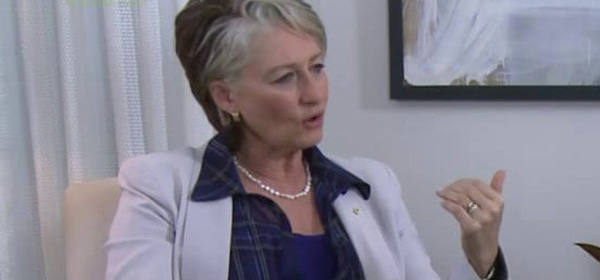Two of Australia’s most prominent doctors have pitted themselves against each other in the debate raging over the merits and risks of online medical databank My Health Record.
Opposition Leader Bill Shorten is calling for the databank’s rollout to be suspended until privacy concerns are addressed and two authoritative sources have contradicted the claim by Health Minister Greg Hunt that police would need a court order to access patients’ medical information.
Australian Medical Association (AMA) president Dr Tony Bartone is a strong supporter of the Federal Government’s databank, which will be used to record and share personal medical treatments received by Australians.
But former AMA president and vocal patient advocate Professor Kerryn Phelps has condemned the way My Health Record will be allowed to be accessed by third parties outside the medical profession and other government agencies.
My Health Records are linked to a patient’s MyGov account, which stores personal information from interaction with Centrelink, Medicare and the Australian Taxation Office (ATO).
The legislative framework for My Health Record permits use or disclosure of medical details for use by the police and the ATO if deemed “reasonably necessary”.
In an opinion piece, Prof. Phelps wrote: “Excuse me? What could ‘protection of public revenue’ possibly have to do with enhancing the healthcare of an individual, or protecting public health? Rhetorical question I know, but to avoid any confusion, the answer is: nothing.”
However, in a different opinion piece in the Sydney Morning Herald, Dr Bartone wrote that the benefits of the databank far outweigh the risks.
“The electronic record will also go a long way to addressing the intractable problem of delayed or non-existent handovers of admitted patients to their GPs on discharge. It will reduce medical harm due to polypharmacy, which is a big issue.
“The electronic record can save lives … We must push ahead with this My Health Record,” he says.
But Prof. Phelps remains unconvinced, citing potential adverse effects on healthcare.
She has called on the AMA and the Royal Australian College of General Practitioners (RACGP) to “qualify their support for My Health Record and demand that the legislation be amended so that disclosure of personal health information be confined to healthcare practitioners with the patient’s permission only, and for the patient’s benefit only”.
While patients can block certain parties from seeing their data with an access code, that code can be overridden if you are involved in a medical emergency that requires life-saving treatment.
Legal experts have also warned that individuals could be coerced to hand over their codes to potential employers and insurance companies, in future.
Soon after scrambling to ‘delink’ certain digital apps from My Health Record earlier this week following public concerns, Health Minister Hunt was in hot water again.
Companies such as Telstra, HealthEngine, Tyde and Healthi already have access to My Health Record information such as Medicare records, test results, scans and prescriptions, for their app users to view on mobile phones. On Tuesday, the Government rushed through new restrictions on the apps.
Soon after, Mr Hunt said that police could only access personal medical histories with a court order. But yesterday, Nigel Brew, the director of foreign affairs, defence and security, said that under Section 70 of the My Health Records Act 2012 the Australian Digital Health Agency (ADHA) can disclose health information when it “reasonably believes” it is necessary to investigate or prosecute a crime, to counter “seriously improper conduct” or to “protect the public revenue”.
“It is reasonable to assume that this might include investigations into potential fraud and other financial offences involving agencies such as Centrelink, Medicare or the Australian Tax Office,” Mr Brew told The Guardian.
Mr Brew said Mr Hunt’s claims that records could only be accessed with a court order “seem at odds with the legislation, which only requires a reasonable belief that disclosure of a person’s data is reasonably necessary” to investigate or prosecute a crime.
The My Health Record legislation therefore “represents a significant reduction in the legal threshold for the release of private medical information to law enforcement”, according to Mr Brew.
The Queensland police union also confirmed yesterday that its members did not need a warrant to access individuals’ My Health Record data.
People have until 15 October to opt out of having their medical information stored on My Health Record.
Will you be opting out of My Health Record? Or will you trust that the Government puts privacy measures in place? Do you think the databank’s roll-out should be suspended?
Related articles
How My Health Record works
Data may not be safe
Advocates want to share data

